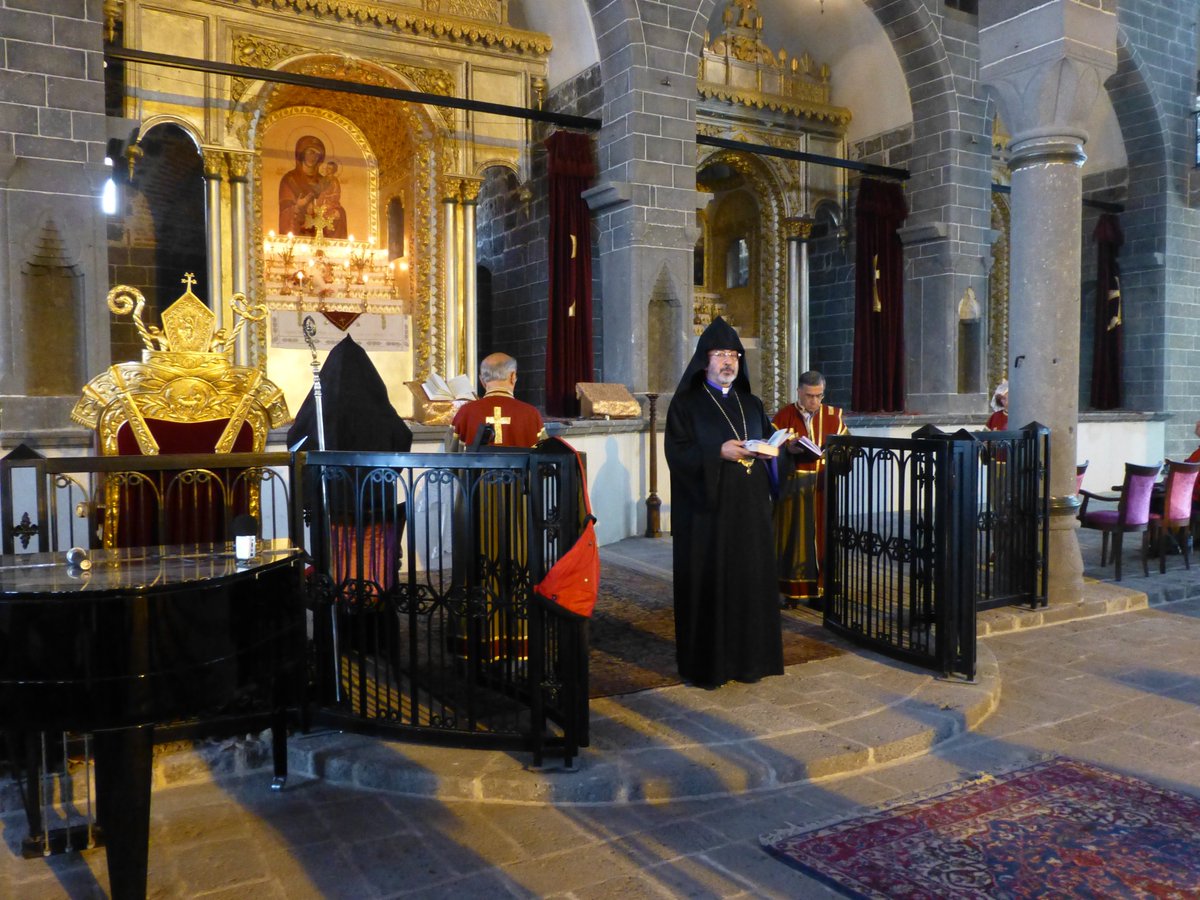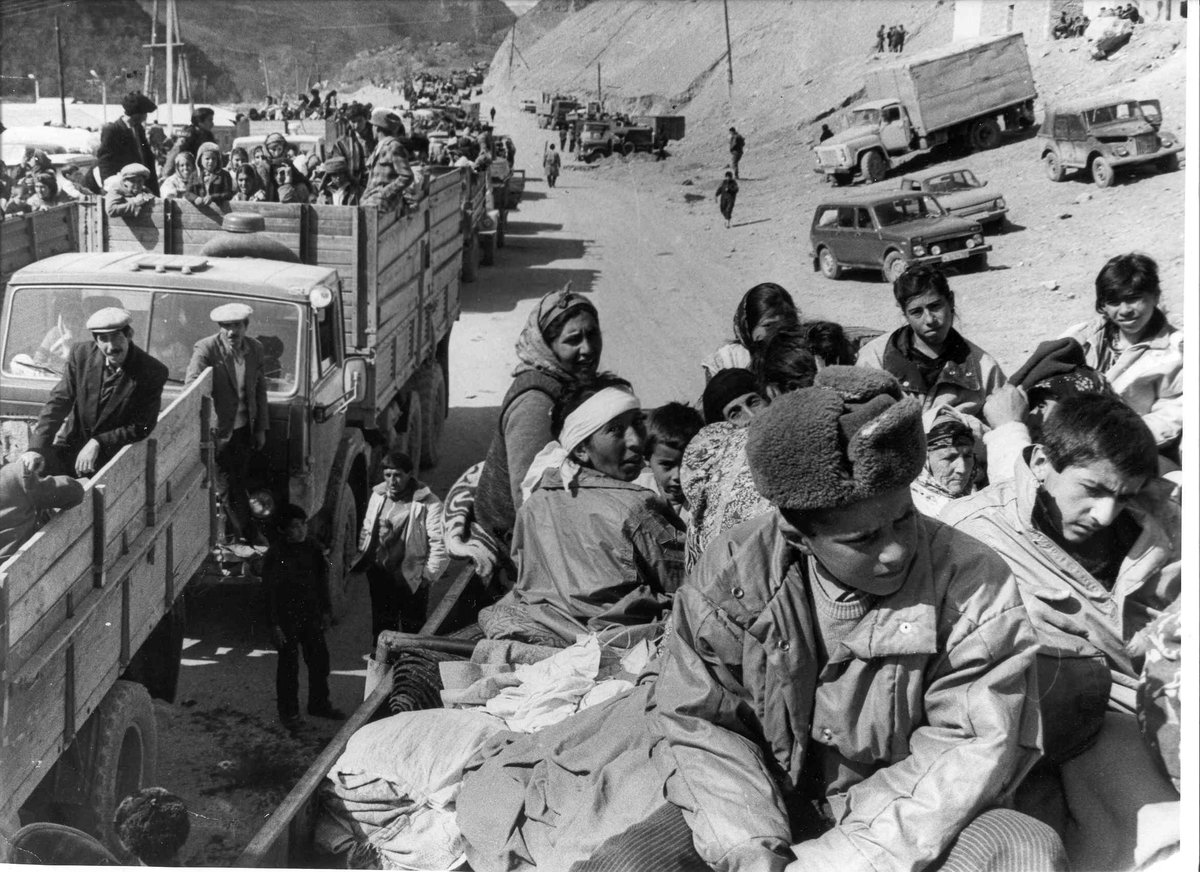
1 Pres. Biden may recognize the destruction of the Ottoman Armenians in 1915 as the Armenian Genocide @john_Hudson, @JakesNYT report. It’s the right thing to do. It will start to bring solace and closure to Armenians whose grandparents died in 1915-16.
2 This could lead to new understanding and dialogue--or not. A thread on this (knowing well that it's far too deep an issue for social media.) Here is my interview to @JAMNewsCaucasus about Armenian-Turkish issues and recognition jam-news.net/armenia-turkey…
3 The first thing to say: the destruction and deportation of almost all the Ottoman Armenians in 1915-16 was acknowledged at the time as the biggest atrocity of WW1. There are thousands of memoirs about it. Here are just five powerful ones
fivebooks.com/best-books/mem…
fivebooks.com/best-books/mem…
4 Historians—Kevorkian, Bloxham Suny etc--have written comprehensive accounts of the massacres. Importantly, Turkish historians, such as Taner Akcam, are now some of the top scholars of this story. To be blunt, no real alternative scholarly “Turkish version” bears weight.
5 The issue of the memory, forgetting, recalling, denial, politics of the “Metz Yeghern” after 1915 is the subject of my book Great Catastrophe. Also how 30 years later Rafael Lemkin devised the term “genocide” in 1944 and this issue came to dominate.
global.oup.com/academic/produ…
global.oup.com/academic/produ…
6 Lemkin specifically referred to the slaughter of the Armenians as genocide. There is no real debate here. Yet the genocide focus is often too legal, not sufficiently human. Philosopher Marc Nichanian has written movingly how a legal focus “forbids mourning”
7 Jews do not talk about the Jewish Genocide. Maybe normalized use of the term “Armenian Genocide” can be a stepping stone to use of a phrase comparable with Shoah and Holocaust--perhaps “Metz Yeghern”-- that sums up the totality of the experience and memorializes it better.
8 As @philippesands has written brilliantly, the term “crimes against humanity” deserves wider use, not just "genocide." "Crimes against humanity" was a term coined by Amb. Henry Morgenthau in 1915 to refer to the Armenian massacres.
9 10-15 years ago the focus was all on how Turkish society was changing. April 24 was marked in Istanbul, there were conferences and books, Kurdish mayors put up memorials. In 2012 I was present at the deeply moving re-dedication of the Armenian church in Diyabarkir. 

10 Hrant Dink the great Armenian-Turkish activist and writer, horribly assassinated in 2007, did more than anyone to begin this debate in Turkey. He said that Armenians and Turks still had an unhealthy dependency on affirmation of Great Powers, should talk to one another.
11 Back then I personally believed that US genocide recognition was far less important than democratizing Turkey. That phase is over sadly, there's a new rationale for calling a spade a spade. The progressive/Kurdish HDP party is persecuted and the nationalist MHP is in power.
12 This can be menacing. I hope the US government is preparing a strong response if in response to Biden the AKP/MHP takes retribution against the 100,000 or so Armenians in Istanbul or Armenian cultural monuments.
13 I also caution against making a read-across from 1915 to the ARM-AZ conflict of 2020. Obviously, ARM and AZ politicians instrumentalize the issue--that's not my point. I’m talking about the real history.
14 In 1915 Azerbaijan was in the Russian Empire and played no part in the killing. The Armenian-Azerbaijan war of 1918-20 was very different, both sides had equal agency. Azerbaijanis and Turks are different in key ways, the history of each with Armenians is very different.
15 Armenians now feel threatened by AZ and TR. But 2021 is not 1921, international norms which worked against Armenians on NK also protect the ROA. Aliev and Erdoğan are 21c autocrats, they are not Talaat Pasha. Judge events now and then on their own merits.
16 To return to the first point: If and when Biden makes his statement, it will tell those Armenians who lost grandparents that their loss is no longer denied. April 24, a day of mourning and remembrance will belong to them. Maybe after that other things can happen.
• • •
Missing some Tweet in this thread? You can try to
force a refresh




